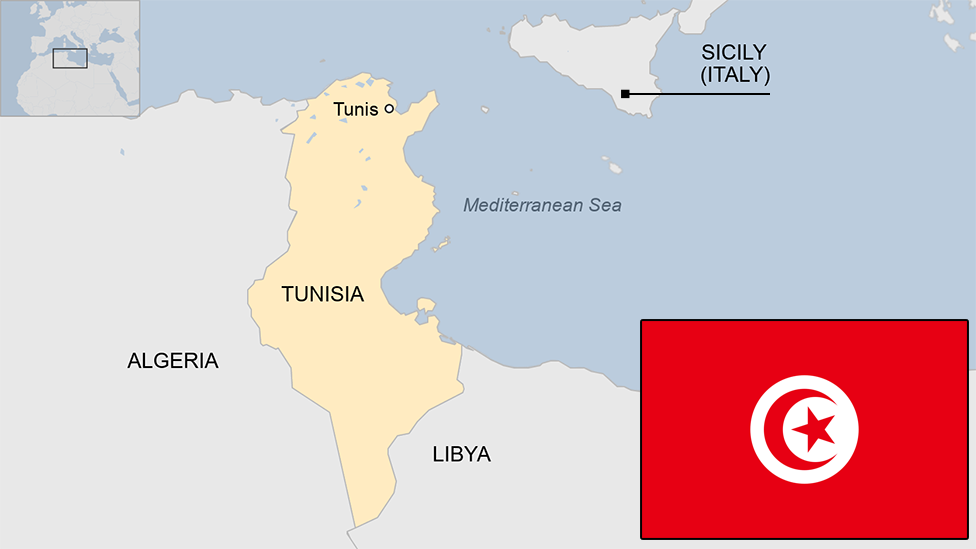Tunisia election: Political outsiders advance to run-off vote
- Published
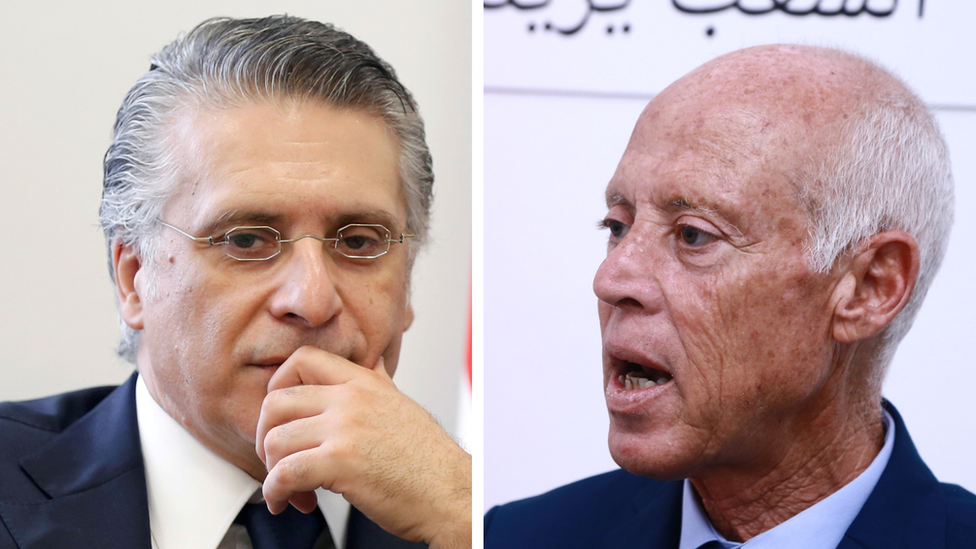
Media mogul Nabil Karoui (L) and independent law professor Kais Saied will compete in a run-off vote
Two political outsiders will compete in a run-off vote to become Tunisia's next president after they topped the first round of voting.
Kais Saied, an independent candidate and law professor, won a shock victory with 18.4% of Sunday's vote.
He was followed in second place by the jailed media mogul Nabil Karoui, who received 15.6% of the vote.
They saw off a crowded field of 24 other candidates who put themselves forward for the presidency.
The result marks a blow for the political establishment, including for Prime Minister Youssef Chahed and former interim President Moncef Marzouki who both failed to progress to the run-off.
This election is the second free presidential poll since the 2011 uprising that toppled ex-President Zine al-Abidine Ben Ali and sparked the Arab Spring.
It was brought forward after the death in July of the country's first democratically elected president, Beji Caid Essebsi, who took office in 2014.
Parliament speaker Mohamed Ennaceur is currently acting as interim president.
The vote has been widely viewed as a test of one of the world's youngest democracies, but there are reports that few of those who travelled to polling booths were young.
Turnout has been low at 45%, despite an earlier call for young Tunisians to go to the polling stations.
How does the vote work?
To win the election outright in the first round a candidate needed to get more than 50% of the votes cast. As no-one got that majority, the two candidates with the most votes, Mr Saied and Mr Karoui, will compete in a decisive run-off.
The date for the second round is yet to be formally announced but it will reportedly take place in October.
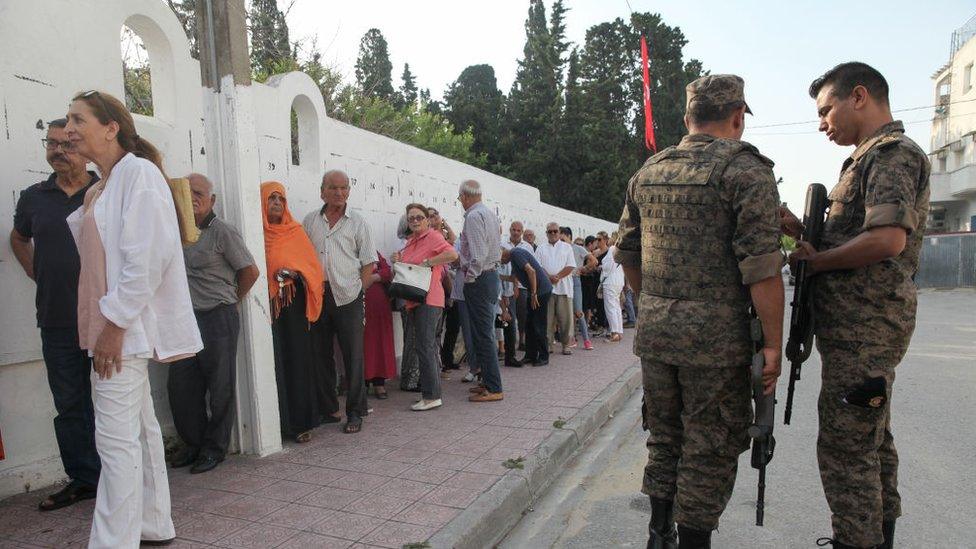
There are reports that few young people turned out to vote on Sunday
The winning candidate will be appointed to office for a five-year term.
The constitution states that Tunisia's president has control over defence, foreign policy and national security. The prime minister, chosen by parliament, is responsible for other portfolios.
Separately, parliamentary elections are scheduled to take place in October.
Who are the successful candidates?
Mr Saied is a 61-year-old constitutional law professor. He is widely described as a conservative but he does not belong to any political party.
He has no political experience and his victory in the first round of voting marks a major shock.
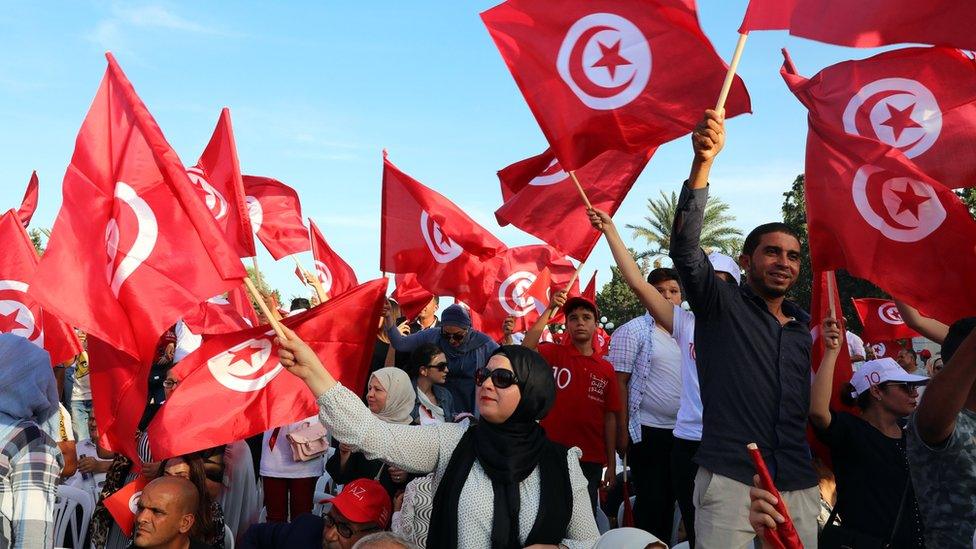
Presidential candidates have held campaign events across the country
Media Mogul Mr Karoui, 56, is running for office from behind bars after he was detained last month on charges of money laundering and tax fraud, which he has denied.
He is still able to stand for election despite his arrest but he was not allowed to vote. He began a hunger strike earlier this month to demand his freedom.
Mr Karoui founded a charity focused on fighting poverty, which has been a central theme of his campaign. Critics have accused him of using the charity and his TV channel to further his political ambitions.
Why is this election significant?
The country has won praise as the only democracy to emerge from the Arab Spring uprisings that began in Tunisia, before spreading across the Middle East and North Africa.
Widespread discontent at economic hardship, decades of autocratic rule and corruption erupted into mass demonstrations in December 2010 after a street vendor set himself on fire when officials confiscated his cart.
The unrest led to the ousting in 2011 of President Ben Ali, who had been in power for 23 years.

The campaign period featured the first ever televised debate of presidential candidates
In what was hailed as a sign of its successful democratic transition, Tunisia held its first-ever televised debate of presidential candidates earlier this month.
But it has not all been smooth sailing. In recent years, the country has suffered attacks by Islamists and economic problems, with unemployment a persistent issue.
In 2018, protesters took to the streets to oppose the government's austerity measures.
Prime Minister Chahed told Reuters news agency that economic opportunities must improve "if Tunisia is to join the club of strong democracy".

You might also be interested in:
How women's lives were revolutionised in Tunisia
- Published15 September 2019
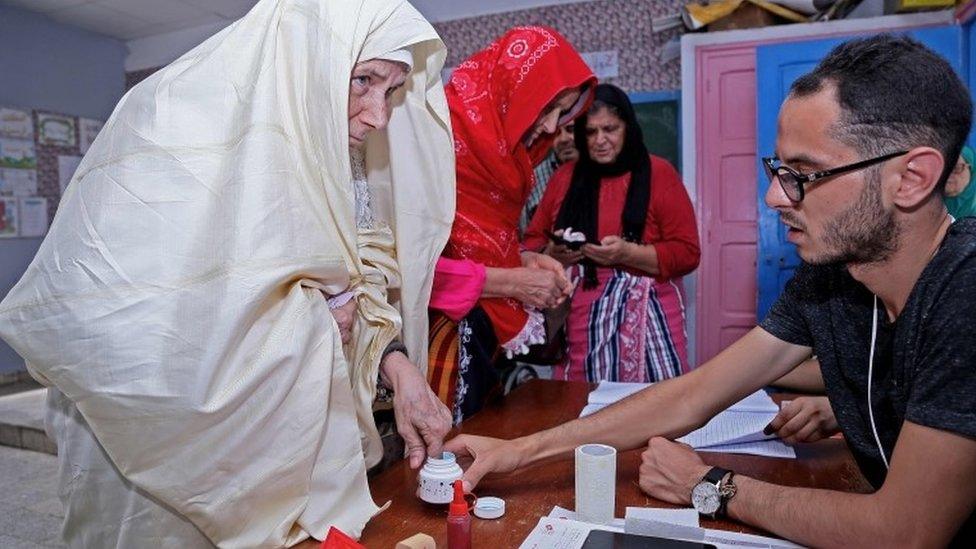
- Published25 July 2019
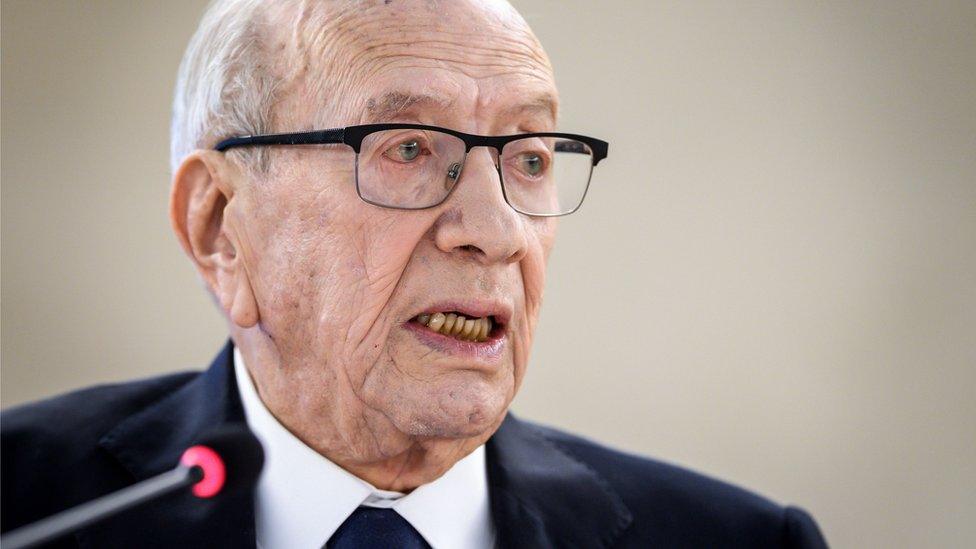
- Published25 July 2019
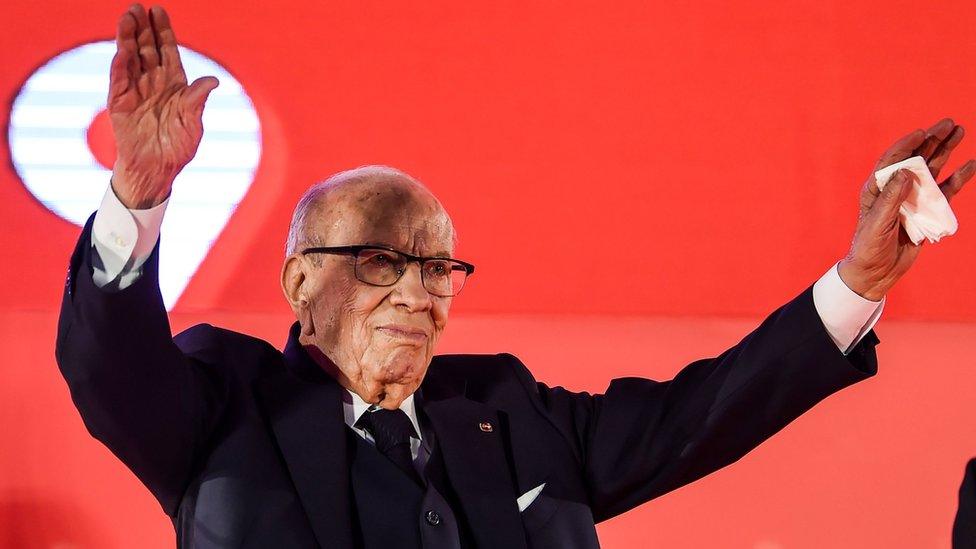
- Published28 February 2017

- Published9 October 2024
